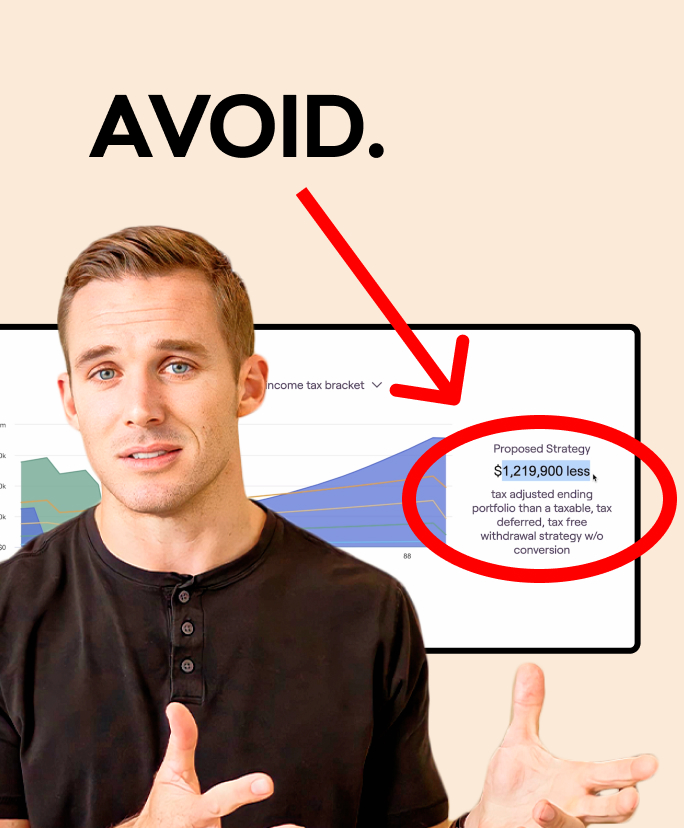Not every sign you’re ready to retire shows up on a spreadsheet.
In fact, some of the most overlooked—and most important—clues that it’s time to step away from work aren’t about money at all.
They’re about how you feel when you wake up, how often you see your loved ones, and whether your healthiest years are slipping away while you chase “just one more bonus.”
In this blog, we explore five emotional, practical, and deeply personal signs that it might be time to retire—drawn from James Conole’s firsthand experience working with hundreds of families on the cusp of this big decision.
1. Time Is the Only Non-Renewable Currency
When we’re young, time feels endless. It’s money that feels scarce—so we prioritize building our careers, saving, investing, and hitting key financial milestones. But there comes a point, James says, when the equation flips.
“You can always make more money. You can never make more time.”
James often meets with people who say they’re almost ready. Just one more year. One more promotion. One more round of stock vesting. But those years add up. And when they finally do retire at 67 or 70, they realize they’ve traded some of the best years of their lives—years they could have spent traveling, exploring, building memories—for marginal financial gains.
James calls this “goalpost planning.” The bar keeps moving, but fulfillment keeps getting delayed. And the regret that surfaces most often? It’s not “I wish I’d worked longer.” It’s “I wish I’d made time for what really mattered.”
2. Your Health Needs to Come First
We don’t often connect work with health decline—but we should.
Years (and decades) of deadlines, long commutes, poor sleep, and mounting stress take a real toll. “There’s a growing number of retirees,” James says, “who enter retirement burned out—mentally, emotionally, and physically.”
Too many people arrive at retirement exhausted. They’ve done everything right on paper—but left their health on the back burner.
James emphasizes that health isn’t something you can outsource or delay. If your job is preventing you from exercising regularly, eating well, managing stress, or simply getting enough sleep, that’s a warning sign.
Yes, retirement can be an opportunity to reset. But it’s far easier—and more impactful—to make those changes while you’re still well enough to enjoy the freedom retirement brings. Investing in your health before it’s too late may be the most important financial decision you ever make.
3. You’re Missing Out on Relationships That Matter
When James talks to retirees about what they value most, the answer is almost never financial. It’s personal. It’s about people.
Relationships are the heartbeat of a fulfilling retirement—and yet, they’re often the first thing sacrificed during our working years.
Think about your week. You might spend 40–50 hours working. Add in a few hours commuting, plus time for errands and household responsibilities. How much true, quality time is left for your spouse? Your kids? Your grandkids? Your closest friends?
Retirement is your chance to reclaim that time.
But here’s the catch: those relationships don’t automatically deepen just because you have more time. You need to be present for them. And if your job is constantly pushing them to the margins, James says, you need to ask whether it’s worth it.
Strong relationships don’t just make life sweeter—they actually contribute to a longer, healthier retirement. The data is clear: social connection reduces stress, increases longevity, and improves mental health. If you’ve been feeling disconnected or stretched too thin to truly show up for the people you love, it might be time to rethink your timeline.
4. Your Healthspan Matters More Than Your Lifespan
Too often, people make retirement plans based on how long they think they’ll live.
But James urges a different approach: plan for your healthspan, not just your lifespan.
Let’s say you expect to live to 90. That sounds like 25–30 years of retirement, right? But in reality, your ability to hike, travel, golf, volunteer, or play with your grandkids may taper off well before then.
In fact, the average American healthspan—defined as the years you live free of chronic disease or major limitations—is closer to age 66.
So if you’re 62 and decide to work until 70 to max out your Social Security, you may be trading your most vibrant, active years for a slightly higher monthly benefit. And here’s the irony: that higher benefit may never get used for the things you care about most.
James puts it this way: “Just because you’ll be alive for 20+ years doesn’t mean you’ll be able to do the things on your retirement bucket list. You want to make sure you’re using your healthy years well—not just extending your working years blindly.”
Delaying retirement doesn’t just shorten the window for adventure. In many cases, it actively accelerates the health decline you’re hoping to avoid—especially in high-stress jobs. If you’re already feeling worn down, it might be time to retire while you still have the energy to enjoy the life you’ve built.
5. You’re Working for Work’s Sake
For many people, work is more than just a paycheck. It’s purpose. It’s identity. It’s structure.
And that’s not a bad thing.
James often meets people who could retire today—but don’t. Not because they need the money, but because the idea of stepping away feels unsettling. “Who am I if I’m not working?”
It’s a valid question. And it’s one that often keeps people stuck.
But here’s the truth: if your work no longer brings joy, meaning, or fulfillment—and you’re financially ready—it might be time to let go. Not because you’re “giving up,” but because you’re making space for something new.
That something might be part-time consulting. It might be travel. It might be time with family, launching a passion project, or simply enjoying slower mornings. Retirement doesn’t have to mean doing nothing. It means doing what matters to you—on your terms.
James encourages people to stop working for work’s sake. If you’re on the hamster wheel and it’s no longer aligned with your values or energy, you don’t need to keep spinning. The goal isn’t to retire from life. It’s to retire into the life you actually want.
Know the Signs (And What to Do Next)
Financial readiness matters—but it’s not the whole picture.
Your time, your health, your relationships, your purpose—these are the things money is supposed to support. And if your current work life is preventing you from nurturing them, it might be time to ask: what are you really waiting for?
Retirement isn’t just a number. It’s a strategy. And when you start weighing the non-financial signs, you gain the clarity to retire not just with confidence—but with intention.
If you want help designing a retirement plan that supports your whole life, not just your bank account, schedule a call with us today.
The information presented is for educational and informational purposes only and should not be construed as personalized investment or financial advice. The content discusses general retirement planning strategies and is not intended to recommend any specific course of action for any individual.
Social Security claiming strategies involve a number of variables, including life expectancy, portfolio returns, tax considerations, and personal circumstances. Decisions regarding Social Security benefits should be made in consultation with your financial advisor, taking into account your full financial picture.
Examples provided are hypothetical and for illustrative purposes only. They do not reflect any specific client situation and should not be relied upon for investment decision-making. Past performance of investments is not indicative of future results. All investing involves risk, including the potential loss of principal.
Root Financial Partners, LLC provides tax planning as part of its financial planning services. However, we do not provide tax preparation services, represent clients before the IRS, or offer legal advice.
Clients should consult their CPA or attorney before implementing any tax or legal strategies discussed. Nothing in this content should be interpreted as a recommendation to take a specific tax position or legal action.
This content may include discussions around advanced financial planning strategies such as Roth conversions, backdoor Roth IRAs, tax loss harvesting, charitable giving, estate planning tactics, or Social Security claiming strategies. These concepts are general in nature and are not personalized advice. Actions related to these strategies may trigger tax consequences or legal implications. Always consult with your CPA or attorney to assess suitability based on your personal financial circumstances.
Suitability for these strategies depends on your individual tax situation, income, age, investment profile, estate plan, and other factors. Actions related to these strategies may trigger tax consequences or legal implications. Always consult with your CPA or attorney to assess suitability based on your personal financial circumstances.


